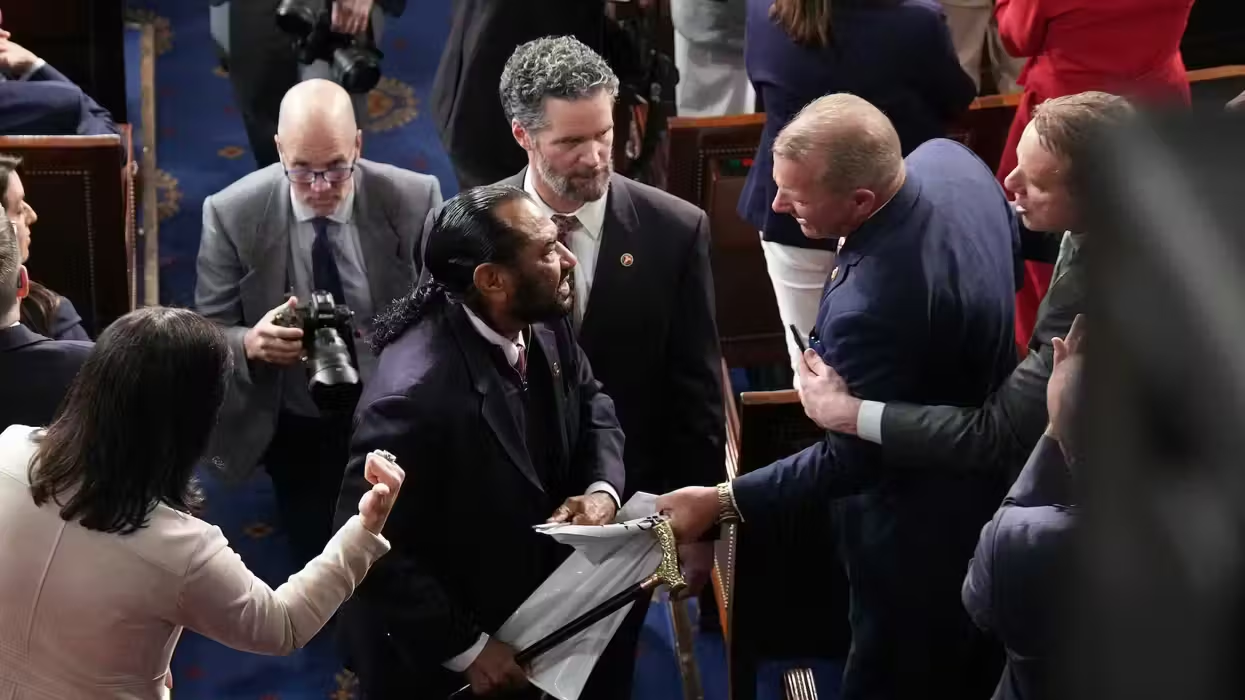In his Senate campaign against Sen. Ted Cruz (R-Texas), Texas Democrat Beto O'Rourke has worked hard to portray the image of an average guy who regularly frequents Whataburger drive-thrus while road-tripping across the state.
However, there's another side of O'Rourke that many might not have heard: The El Paso Democrat married into a monied family and was involved in a business deal that sought to take over the land of residents and businesses in his hometown, the New York Times reported.
What's the story?
O'Rourke married Amy Sanders in 2005. His father-in-law is billionaire real estate developer William D. Sanders, who started the national real estate company LaSalle Partners, headquartered in Chicago, and later merged to form Jones Lang LaSalle. His portfolio is estimated at a value of $20 billion, according to the Times.
In March 2006, William D. Sanders introduced to the city council a plan to redevelop 300 acres in downtown El Paso. His proposal included replacing tenements and old boarded-up buildings with restaurants, shops, and art galleries.
O'Rourke was a city council member at the time and represented the historic Mexican-American neighborhood being targeted by his father-in-law's plan. He voted to move the plan forward, calling the area “one piece of El Paso that was missing on the road back to greatness."
For the next couple of years, O'Rourke would continue to advance the development plan while defending it to barrio residents who were upset and angry. As he advocated support for his wealthy father-in-law's proposal, residents and several business owners accused O'Rourke of having a conflict of interest.
“Mr. O’Rourke was basically the pretty face of this very ugly plan against our most vulnerable neighborhoods,” local historian David Dorado Romo told the Times, adding that the issue brought back longstanding race and class divisions in the border city.
What was the plan for the barrio's redevelopment?
Paso del Norte Group, a nonprofit organization with 300 leaders from El Paso and Ciudad Juárez, Mexico, was leading the drive for the barrio's redevelopment. The invitation-only organization, whose membership included O’Rourke and his future wife Amy Sanders, received city funding and a federal grant to develop its plan.
The success of the plan relied heavily on the city's ability to convince property owners to turn over their holdings to a private trust. In the case of owners who refused, eminent domain would be used to take their land, the Times reported.
A city image study was released in 2006 that depicted the old face of El Paso with an older man in a cowboy hat with the notations, “speak Spanish,” “dirty,” “lazy” and “uneducated.” The city's new image featured headshots of Penélope Cruz and Matthew McConaughey with notations like “educated” and “bilingual.”
Business owners who opposed the plan formed an organization called Land Grab Opponents. The group filed an ethics complaint with the city, stating O’Rourke had a financial stake in the development plan and his company, Stanton Street Technology Group, had provided information technology services to the Paso Del Norte Group.
“[H]is financial involvement only crystallizes the conflict of interest for Representative O’Rourke,” the complaint said.
The complaint was rejected by the city ethics committee.
Stuart Blaugrund, the lawyer who represented the Land Grab Opponents, told the Times that O'Rourke was "tone-deaf' to the idea that there was a conflict.
“He ultimately recused himself and did the right thing, but it seemed to me to be unnecessary for us to have to generate such ire among his constituents in the interim period,” Blaugrund told the newspaper. “Even if he didn’t have an actual conflict, the optics were terrible.”
Blaugrund said the plan was eventually scrapped partly because of a 2009 state ballot initiative that prohibited the use of eminent domain to take property for private use.
Though the plan was ultimately abandoned, some of O'Rourke's constituents are still unhappy over the situation.
“We had voted for Mr. Beto, and now that he got to the top, and close to the power, he turned things around on us,” Guadalupe Ochoa, 75, told the newspaper through an interpreter.
O'Rourke declined the Times' request for an interview, and William Sanders did not respond to paper's queries.
What else?
In 2012, O'Rourke ran for Congress and one of Sanders' companies contributed $37,500 to the Campaign for Primary Accountability super PAC, according to USA Today.
In turn, the PAC spent $240,000 to help O'Rourke in his race against eight-term Democratic Rep. Silvestre Reyes.
O'Rourke beat Reyes by 3,000 votes, the Times noted.







